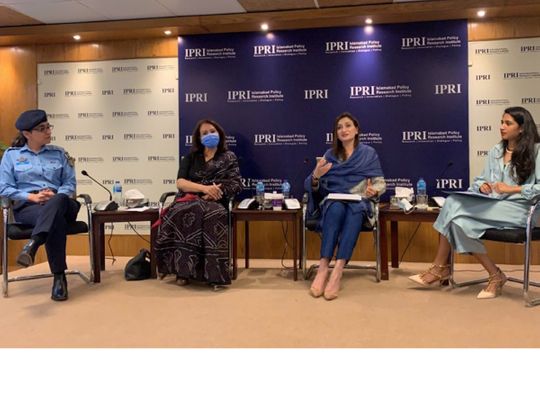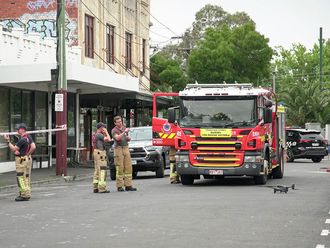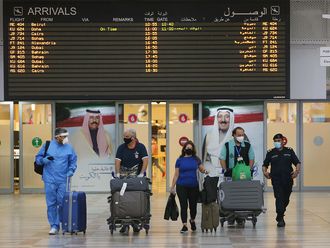
Islamabad: An online platform utilising technology has been launched in Pakistan to help address the gaps in information and access to services and support for women.
Ministry of Law and Justice and Islamabad Policy Research Institute (IPRI) think-tank joined hands to initiate the project which aims to provide support for victims and survivors of gender-based violence (GBV).
The technology-based solution currently includes an online dashboard and will incorporate a mobile app later to detail the information of services available across the country for women and girls affected by GBV. The website currently lists 48 Darul Amaan (shelter homes), 26 crisis centres and 64 district headquarters hospitals (DHQ).
The main objective is to provide relief and support for victims and survivors of violence. The technology-based intervention aims to use data to provide accurate and useful information and support to affected women in the first phase. Dr Nadim Hussain, IPRI executive director, said there was an urgent need to streamline data and policy input so that the critical issue of gender violence could be tackled effectively.
The launch ceremony was followed by a discussion by Parliamentary Secretary for Law and Justice Barrister Maleeka Bokhari, Islamabad Police ASP Amna Baig and human rights activist Farzana Bari.
Maleeka Bokhari said that the project was launched to prioritize state resources to make existing services accessible to victims and survivors of GBV as part of the government’s effort to address crimes against women. The online dashboard is the first step towards creating a system to map violence hotspots by analyzing data, to provide help to survivors and advocate for change in society. The data and information will help create a national policy and a technology-based solution to prevent crimes against women, she said.
ASP Amna Baig urged for advocacy measures alongside service delivery to enable more women to come forward to report abuses. Sharing the details of the new Gender Protection Unit set up by Islamabad Police in May this year, she said “The unit is run by women police and staff in an effort to encourage women to report crimes.” They received 550 complaints in the last 3 months. “The data collection and management practice at the unit is the most productive exercise as it helps the police department best utilize the limited resources” to serve the public.
Data and technology is, however, only one aspect of the larger issue which needs effective implementation of laws and clear policy to address the structural issues in a multicultural and diverse society like Pakistan, said Farzana Bari. She pointed out the digital divide that affects women and those in rural provinces who are less likely to have access to information online. Bari suggested a comprehensive mechanism for equal access to services for people in both rural and urban areas.
Although Pakistan’s mobile gender gap has narrowed in recent years, still only 50 per cent of women own a mobile compared to 81 per cent of men. Smartphone ownership is moderately low for both men (37 per cent) and women (20 per cent), according to GSMA telecoms industry association.
The speakers urged for a comprehensive and inclusive system to continue to address this form of violence in Pakistan and to better support survivors using digital and conventional means to offer them legal, medical, psycho-social, safety, shelter.








